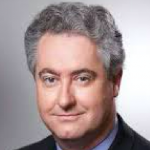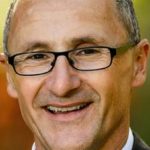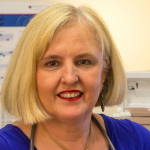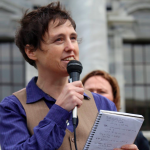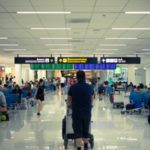Cannabis Patients Denied Access: An Interview With MCUA President Deb Lynch
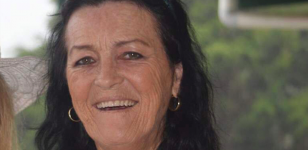
The Australian medicinal cannabis quagmire is heavily impacting patients. The whole debate around the medicine has been about how to get a criminalised plant, which is now widely recognised for its beneficial qualities, into the hands of those that need it.
And so far, the local model has failed.
The Turnbull government passed legislation to allow for the cultivation and manufacture of the plant for medicinal purposes 24 months ago. To date, the Office of Drug Control has issued 30 cannabis-related licences. However, there’s still no legal domestic product available.
Only 350 patients nationwide have been issued with medicinal cannabis prescriptions. But, even when a patient does secure a script, they then face having to pay exorbitant prices for imported medicines, or worse, state health authorities continue to block their access.
Australian health minister Greg Hunt announced in January that the government is set to change regulations to enable the country to become the biggest exporter of cannabis in the world. And this left many patients feeling very much neglected by those politicians with the dollar signs in their eyes.
Bureaucratic obstacles
Meanwhile, doctors are unsure how to move. Since medicinal cannabis was effectively legalised, governments and health authorities have failed to put any policy into place that would educate the medical profession about these medicines.
Many medical practitioners still have little understanding of cannabis medicines. While those GPs that want to prescribe them are faced with a mountain of red tape. And they also have to seek the endorsement of a specialist to back up their recommendation.
So, it seems that many GPs are simply not willing to attempt to prescribe cannabis as the multiple barriers that have been placed in their way are hardly encouraging them to do so.
Criminalising the sick
At present there’s an estimated 100,000 patients using medicinal cannabis around the country. And as the overwhelming majority of these patients can’t get a doctor’s script, they’re forced to do what they’ve always done and procure their medicines on the black market.
Currently, NSW Labor MLC Adam Searle has a bill before state parliament that would rectify this situation. Under its provisions, registered users would be able to access illegal product without fear of prosecution, whilst a lawful cannabis supply chain is being set up.
A long-term advocate
Deb Lynch is the president of the Medicinal Cannabis Users Association of Australia (MCUA). And she’s well aware of the plight of patients under this system. Last June, Ms Lynch was arrested by Queensland police for the possession of cannabis she was using to treat her medical conditions.
Ms Lynch is also part of the Canna Nannas. They’re a good of grandmothers conducting workshops around the country, educating the elderly about the benefits of medicinal cannabis. The group are taking their workshop to Nambour next month, and then onto Townsville and Rockhampton.
Sydney Criminal Lawyers® spoke with Deb Lynch about her repeated attempts to secure a medicinal cannabis prescription, the tack she’s taking in the courtroom following her arrest last year, and the battle all patients who use cannabis medicines are having in this country.
Firstly, Deb, on January 6, you put in a request with a Queensland hospital to be prescribed medicinal cannabis. You received a reply on January 22. What did they outline in the reply?
The reply was to a letter of complaint, because I’ve been asking to be prescribed medicinal cannabis since the laws changed in Queensland. I’ve asked my doctors multiple times.
The first time was in October 2016. I was told then that Queensland Health doctors had been warned not to rock the cannabis boat or they’d be looking for another job.
I asked another rheumatology specialist in April last year, and he informed me that it wasn’t legal. I corrected him. I said it is legal and I should be able to be prescribed it through the hospital.
He directed me to go and speak to the head pharmacist. I called the pharmacy department and spoke to someone there. They were going to get the head pharmacist to call me back. And I’m still waiting for that call.
And last October, I asked my rheumatologist again. In that conversation, he said the hospital’s doctors had had a meeting and because there had only been a few prescriptions approved in Queensland, they weren’t even going to bother being prescribers.
So, I put in a complaint to the hospital and that’s the response I got back.
So, they’ve said you can’t access medicinal cannabis.
Yes.
You’ve been served with a subpoena to appear in court on March 5. What’s this order in relation to?
I was charged with cannabis crimes last year. I’ve actually served Queensland Health with subpoenas to appear in court. And I was served with a subpoena to try and have those set aside.
They don’t want to give evidence. They don’t want to answer any questions. And they don’t want to produce any documentation.
As you mentioned, last year, when we last spoke to you, you’d just been arrested by Queensland police for the possession of cannabis that you were using to treat your conditions with.
What has subsequently happened regarding that matter?
Initially, I was paying a solicitor to do this. He advised me to plead guilty. He said he’d had a conversation with the police prosecutor who was handling my case, and that she’d told him that the first questions they were going to ask were: did I possess cannabis, and did I produce cannabis?
So, in the beginning I pleaded guilty. The sentencing date was several weeks later. And in the time in between, I had to let go of my solicitor, because I couldn’t afford to pay him, and I didn’t feel he was representing me.
I’d said from word go that I wanted to fight these charges. And he was convincing me to just plead guilty and cop it on the chin. In the end, when I knew I couldn’t afford it, I let him go.
Now, Grace Sands is helping me with the paperwork. We had a chat one day. And she said, “Why are you pleading guilty?” I said, “I don’t want to. But, what choice do I have?” And she said, “Put in an affidavit and see if we can have it set aside.”
That’s what we did. When I went to the sentencing hearing, instead of being sentenced, I submitted an affidavit and asked to have the guilty plea set aside.
On the day, the magistrate sat there for 25 minutes reading the affidavit, and his face got redder and redder. In the end, he said, “You know this goes against all case law?” But, he qualified it by saying that in other cases people had already been sentenced, whereas I hadn’t been sentenced yet. So, he set aside the guilty plea on that basis. And he said I can go to a hearing.
That’s when I served Queensland Health with the subpoena as I want to be able to prove that they’re blocking access. And they’ve come back with a subpoena to have them set aside. That’s on Monday.
Depending on how many witnesses I have left after the subpoena hearing I could have up to 16 witnesses. The trial itself will probably take three to four days. And they’ll be setting the trial date at a mention on March 8.
Right now, most Australian patients can’t secure a medicinal cannabis prescription. What are the implications of this situation for them?
It’s a no-win situation. We go to our doctors, and they don’t want to talk about it. Or they say the application process is too difficult.
We did a survey of MCUA members on prescribing. We have one fellow who has been approved, who needs THC to control his seizures. He’s been seizure-free for 10 years from just smoking cannabis. But, the oil that they want to put him on is a CBD oil. It has very little THC in it.
This man is concerned that he’s going to start having seizures again. His neurologist has told him that if he starts having seizures again, the next step is a lobotomy. They’re going to operate on his brain. And he doesn’t want to do that.
He said, “I’ve had this under control for 10 years. And what they’re giving me is not what I need.” Then he went to the chemist to pick up the prescription. He’s going to have to pay $700 a month for the oil that they want him to be on.
So, he’s going to be paying that amount for a medicine that doesn’t have the correct components in it?
No. He said, point blank, “I can’t do this, because I’m going to start having seizures again. I’ve been 10 years seizure-free.” He can’t take the risk. These people who have these seizures risk death every time they have one.
But, you’re also aware of certain patients who’ve been approved prescriptions, but are subsequently denied access. Can you explain how this is happening?
Basically, it’s the same problem over and over. They’re not so much being denied access, but they’re being denied access to the medicines that they need. These medicines are being changed and substituted after the doctor has prescribed them.
People in the TGA are actually changing prescriptions as they come in and deciding for themselves that the THC levels are too high, so they put them on another oil.
We have to ask whether there might be some conflict of interest. I’ve stumbled across a few things in my investigations, and there certainly are questions to be asked regarding conflict of interests.
The hospital stated that you couldn’t be prescribed medicinal cannabis as there’s not enough clinical evidence to support treating your condition, scleroderma CREST variant, with these medicines.
What do you think about that claim? And would that happen if you were trying to access medicinal cannabis in the US or Canada?
Not at all. There are hundreds of studies out that show that using cannabis with my disease specifically works. I’ve got half a dozen research studies here that I’ll be submitting to the court next week.
It’s said that your average GP is reluctant to prescribe medicinal cannabis. What would you say is behind this?
There’s a lot of misinformation out there. A lot of GPs in particular are under the impression that they’re not allowed to prescribe. That’s not the case at all in Queensland. Any doctor in Queensland can prescribe through the individual patient’s access pathway.
Last year, you attended Dr David Caldicott’s medicinal cannabis workshop for doctors and nurses. We spoke to the doctor a few weeks back about the course.
Do you think the government should be investing in a course like this to ensure that medical practitioners are more aware of these medicines?
Most definitely. However, I really believe it needs to be conducted by someone like Dr Caldicott.
Presently, the people they have in charge of regulating and deciding these things for patients have been anti-cannabis proponents in the past.
So, we really need someone who is going to look at this from an objective and honest perspective.
One has to wonder whether there’s an ultimate goal here. As I’ve said before, I went to a cultivators meeting where Bill Turner from the Office of Drug Control spoke in July 2016.
At that meeting, he said that although it starts with patients, the government’s main priorities are international reputation and future exports markets.
And that has turned out to be the case, as patients are still being ignored, yet the export markets are going ahead.
NSW Labor MLC Adam Searle has introduced a bill before state parliament that’s been called a game-changer as it lifts criminal sanctions for registered users who access black market product.
What do you think about a bill like this being introduced into the Australian setting?
If it includes the black market, it would be absolutely wonderful. However, I’m not sure that that is how it’s going to work out.
Mr Searle said in parliament that the “NSW government does not appear to have any plans for locally produced cannabis, but if there is we will hear about it in this debate.
There needs to be a safe, legal and local supply of product. Victoria is showing it can be done. We know illicit cannabis grows well in NSW. Why should our state miss out on the development of a useful and potentially lucrative new primary industry? It should not. We must provide for a safe and local supply chain.
The bill before this house will also permit the creation of a lawful supply chain of medicinal cannabis, something the Legislative Council committee was not able to definitively deal with.”
Supply chain is a curious term to use. Patients supplying for themselves is not a supply chain. A supply chain is the sequence of processes involved in the production and distribution of a commodity.
There’s a few more things to consider. You’ve got an election in NSW coming up in March next year, and if the Liberals get in, they’ll be making the regulations. And they’re not onside.
They’ve had two health ministers who are anti-cannabis. Jillian Skinner redlined any recommendations made by the medicinal cannabis inquiry in 2013. And Brad Hazzard led the government to reject the Foley bill last year.
The thing is the regulations can be written however they want them to be set. It doesn’t necessarily mean that patients are going to have access.
Part 3 clause 8 of the bill enables the state to establish a scheme for authorising the activities needed to create a lawful supply chain. It sounds more like a state-run supply chain. It may just be the terminology, but I would like to have that qualified.
The regulations also permit the creation of a scheme for the granting of any licences, permits or other authorities and activities, which include requirements for criminal record checks.
It sounds like an approval process. They say these points will be clarified in the regulations when made. But, who will be making the regulations.
As I said, a few minutes ago, the Liberals have already shown contempt for the bill in the lower house. And I can’t see them agreeing to any home grow.
And lastly, Deb, in your opinion, what needs to take place in order to bring about a meaningful change for patients?
Ideally, end the prohibition. Change the schedule and remove cannabis altogether. It is not a poison and it is not a narcotic. And it should be growing in everybody’s yard.
There are anti-inflammatory effects if you eat it raw. People should be eating this in their diet. It was taken out of our diet when it became illegal. And it was also taken out of the diet of all the animals that produce our food: the eggs, the dairy and the meat.
Are we fourth generation endocannabinoid deficient? Is this the reason why we have escalating modern day illnesses? Autoimmune diseases for instance have been scientifically linked to an endocannabinoid deficiency or disfunction.


